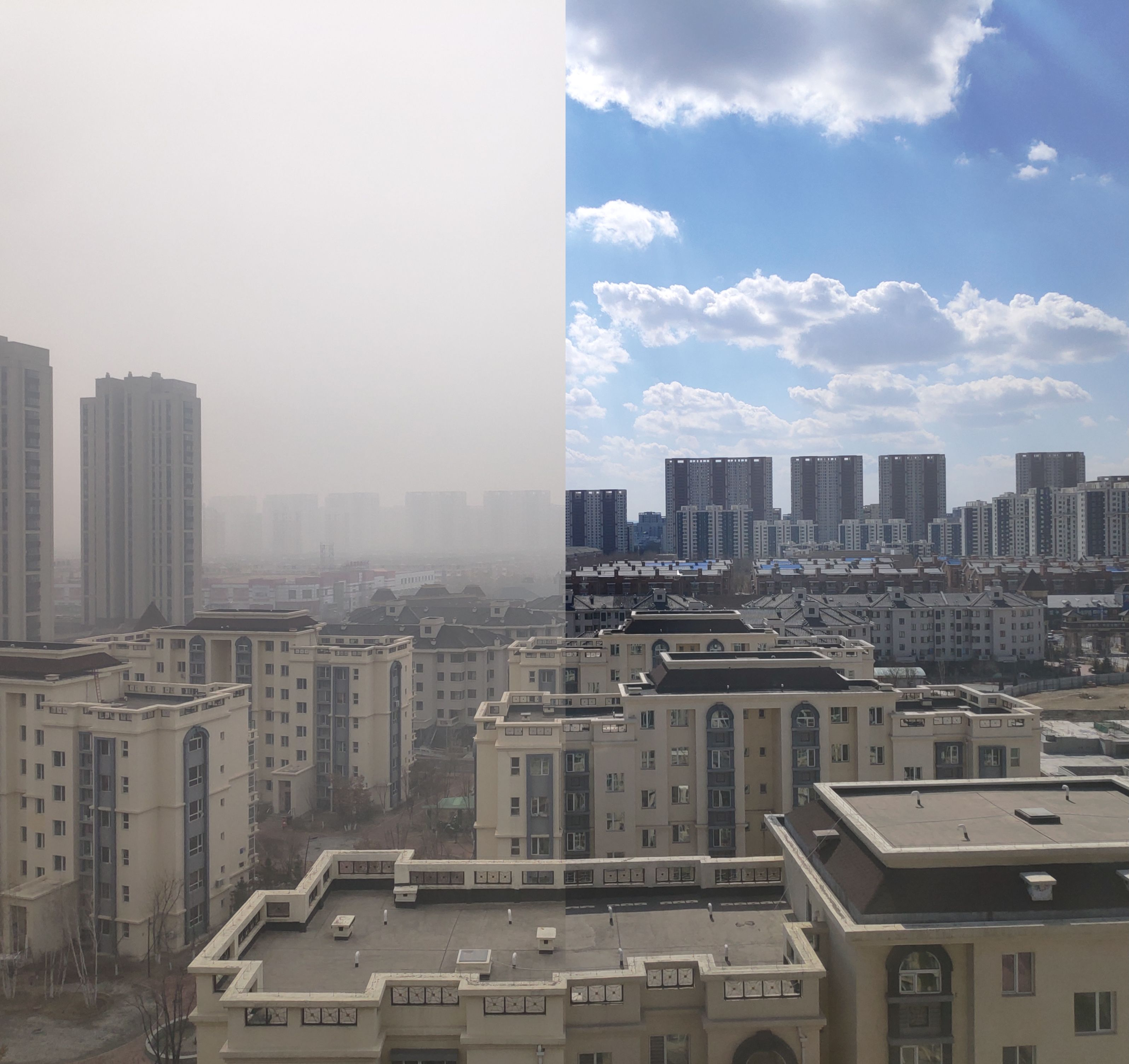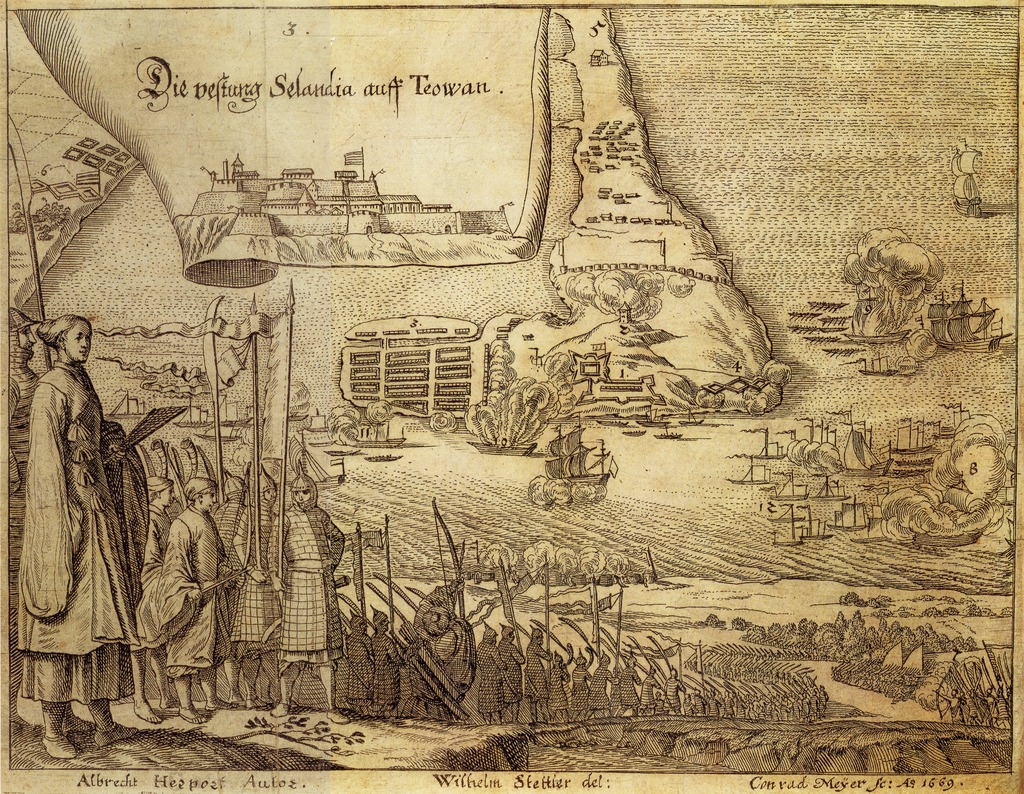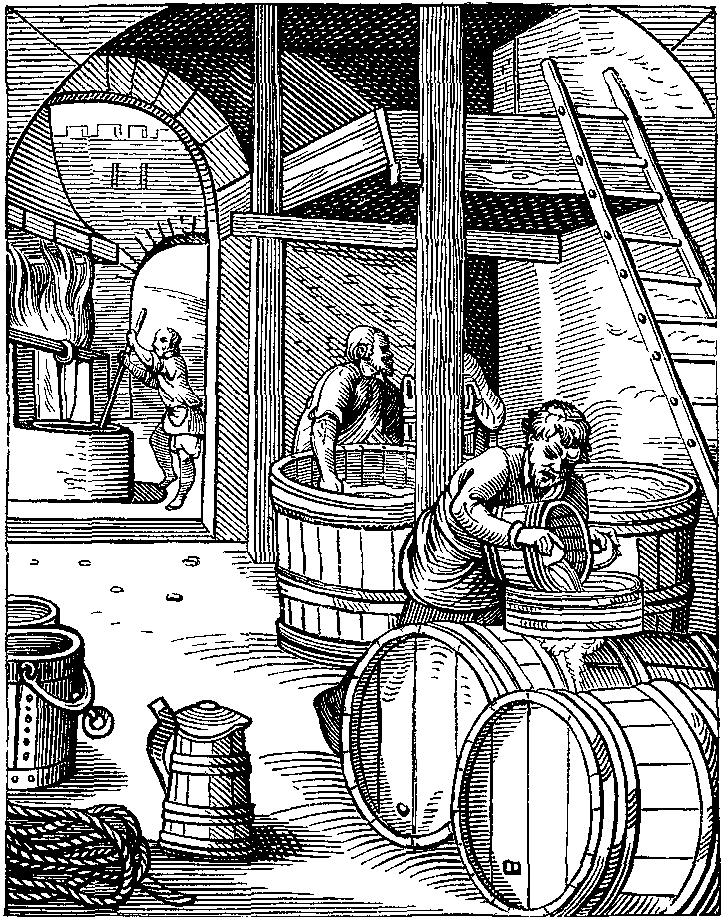|
Fumifugium
''Fumifugium, or, '' is a pamphlet published in London, 1661 (see 1661 in literature), by John Evelyn. It is one of the earliest known works on air pollution and is still considered a significant contribution to the literature on the subject over three and half centuries after its publication. The letter was specifically addressed to King Charles II of England and discussed problems with the capital's air pollution dating back to medieval times. Evelyn refers to Greek philosophers, who once believed that air was the principle of the earth and primary substance of the soul up until the time that air pollution began to cause ill health. Background Evelyn was appointed to the newly formed Royal Society, and both Society and pamphlet are celebrated in the 1663 " Ballad of Gresham College". Stanza 23 (given here in modern English) describes how Evelyn ..shows that 'tis the sea-coal smoke That always London does environ, Which does our lungs and spirits choke, Our hanging spoil ... [...More Info...] [...Related Items...] OR: [Wikipedia] [Google] [Baidu] |
John Evelyn
John Evelyn (31 October 162027 February 1706) was an English writer, landowner, gardener, courtier and minor government official, who is now best known as a diary, diarist. He was a founding Fellow of the Royal Society. John Evelyn's Diary, John Evelyn's diary, or memoir, spanned the period of his adult life from 1640, when he was a student, to 1706, the year he died. He did not write daily at all times. The many volumes provide insight into life and events at a time before regular magazines or newspapers were published, making diaries of greater interest to modern historians than such works might have been at later periods. Evelyn's work covers art, culture and politics, including the execution of Charles I, Oliver Cromwell's rise and eventual natural death, the last Great Plague of London, and the Great Fire of London in 1666. ''John Evelyn's Diary'' was first published posthumously in 1818, but over the years was overshadowed by that of Samuel Pepys. Pepys wrote a differen ... [...More Info...] [...Related Items...] OR: [Wikipedia] [Google] [Baidu] |
Smog
Smog, or smoke fog, is a type of intense air pollution. The word "smog" was coined in the early 20th century, and is a portmanteau of the words ''smoke'' and ''fog'' to refer to smoky fog due to its opacity, and odour. The word was then intended to refer to what was sometimes known as pea soup fog, a familiar and serious problem in London from the 19th century to the mid-20th century, where it was commonly known as a London particular or London fog. This kind of visible air pollution is composed of nitrogen oxides, sulfur oxide, ozone, smoke and other Particulate matter, particulates. Man-made smog is derived from coal combustion emissions, vehicular emissions, industrial emissions, forest and agricultural fires and photochemical reactions of these emissions. Smog is often categorized as being either summer smog or winter smog. Summer smog is primarily associated with the photochemical formation of ozone. During the summer season when the temperatures are warmer and there is ... [...More Info...] [...Related Items...] OR: [Wikipedia] [Google] [Baidu] |
London
London is the Capital city, capital and List of urban areas in the United Kingdom, largest city of both England and the United Kingdom, with a population of in . London metropolitan area, Its wider metropolitan area is the largest in Western Europe, with a population of 14.9 million. London stands on the River Thames in southeast England, at the head of a tidal estuary down to the North Sea, and has been a major settlement for nearly 2,000 years. Its ancient core and financial centre, the City of London, was founded by the Roman Empire, Romans as Londinium and has retained its medieval boundaries. The City of Westminster, to the west of the City of London, has been the centuries-long host of Government of the United Kingdom, the national government and Parliament of the United Kingdom, parliament. London grew rapidly 19th-century London, in the 19th century, becoming the world's List of largest cities throughout history, largest city at the time. Since the 19th cen ... [...More Info...] [...Related Items...] OR: [Wikipedia] [Google] [Baidu] |
Limekiln
A lime kiln is a kiln used for the calcination of limestone (calcium carbonate) to produce the form of lime (material), lime called ''quicklime'' (calcium oxide). The chemical equation for this chemical reaction, reaction is: Calcium carbonate, CaCO3 + heat → Calcium oxide, CaO + Carbon dioxide, CO2 This reaction can take place at anywhere above , but is generally considered to occur at (at which temperature the partial pressure of CO2 is 1 atmosphere (unit), atmosphere), but a temperature around (at which temperature the partial pressure of CO2 is 3.8 atmospheres) is usually used to make the reaction proceed quickly.Parkes, G.D. and Mellor, J.W. (1939). ''Mellor's Modern Inorganic Chemistry'' London: Longmans, Green and Co. Excessive temperature is avoided because it produces unreactive, "dead-burned" lime. Slaked lime (calcium hydroxide) can be formed by mixing quicklime with water. History Pre-pottery Neolithic In plaster, proto-pottery, and mortar Because it ... [...More Info...] [...Related Items...] OR: [Wikipedia] [Google] [Baidu] |
Pamphlets
A pamphlet is an unbound book (that is, without a Hardcover, hard cover or Bookbinding, binding). Pamphlets may consist of a single sheet of paper that is printed on both sides and folded in half, in thirds, or in fourths, called a ''leaflet'' or it may consist of a few pages that are folded in half and Saddle stitch stapler, saddle stapled at the crease to make a simple book. In the "International Standardization of Statistics Relating to Book Production and Periodicals", UNESCO defines a pamphlet as "a non-periodical printed publication of 5 to 48 pages, excluding covers, published in a specific country and available to the public," while a book is "a non-periodical printed publication of at least 49 pages, excluding covers." These definitions are intended solely for UNESCO's book production statistics. Etymology The word ''pamphlet'' for a small work (''opuscule'') issued by itself without covers came into Middle English as or , generalized from a twelfth-century Elegiac c ... [...More Info...] [...Related Items...] OR: [Wikipedia] [Google] [Baidu] |
Air Pollution In The United Kingdom
Air pollution in the United Kingdom has long been considered a significant health issue, and it causes numerous other environmental problems such as damage to buildings, forests, and crops. Many areas, including major cities like London, are found to be significantly and regularly above legal and recommended pollution levels. Air pollution in the UK is a major cause of diseases such as asthma, respiratory disease, lung disease, stroke, cancer, and cardiovascular disease, heart disease, and it costs the health service, society, and businesses over £20 billion each year. Outdoor pollution alone is estimated to cause 40,000 early deaths each year, which is about 8.3% of deaths. Air pollution is monitored and regulated. Air quality targets for particulates, nitrogen dioxide and ozone, set by the Department for Environment, Food and Rural Affairs (DEFRA), are mostly aimed at local government representatives responsible for the management of air quality in cities, where air quality mana ... [...More Info...] [...Related Items...] OR: [Wikipedia] [Google] [Baidu] |
1661 Works
Events January–March * January 6 – The Fifth Monarchists, led by Thomas Venner, unsuccessfully attempt to seize control of London; George Monck's regiment defeats them. * January 29 – The Rokeby baronets, a British nobility title is created. * January 30 – The body of Oliver Cromwell is exhumed and subjected to a posthumous execution in London, along with those of John Bradshaw and Henry Ireton. * February 5 – The Shunzhi Emperor of the Chinese Qing Dynasty dies, and is succeeded by his 7-year-old son the Kangxi Emperor. * February 7 – Shah Shuja, who was deprived of his claim to the throne of the Mughal Empire by his younger brother Aurangzeb, then fled to Burma, is killed by Indian troops in an attack on his residence at Arakan. * February 14 – George Monck’s regiment becomes ''The Lord General's Regiment of Foot Guards'' in England (which later becomes the Coldstream Guards). * March 9 – Following the death o ... [...More Info...] [...Related Items...] OR: [Wikipedia] [Google] [Baidu] |
Nathaniel Henshaw
Nathaniel Henshaw M.D. (baptised 1628 – 1673) was an English physician and original Fellow of the Royal Society. Life He was a younger son of Benjamin Henshaw (died 4 December 1631) and his wife Anne, daughter of William Bonham of London; Thomas Henshaw was his elder brother. He first studied medicine at the University of Padua in 1649. He was entered for the physic course at Leyden University on 4 November 1653, proceeded M.D. there, and was admitted M.D. ad eundem at Trinity College, Dublin in the summer term 1664. On 20 May 1663 Henshaw was elected Fellow of the Royal Society. He practised in Dublin as a physician, but died in London in September 1673, and was buried on 13 September in Kensington Church. His will, dated 6 August 1673, was proved at London on the following 11 September by his sister, Anne Grevys. Works Henshaw was author of a treatise ''Aero-Chalinos'' (1664) concerned with "fresh air" and its medical value. A second edition (London, 1677) was printed by ... [...More Info...] [...Related Items...] OR: [Wikipedia] [Google] [Baidu] |
Robert Boyle
Robert Boyle (; 25 January 1627 – 31 December 1691) was an Anglo-Irish natural philosopher, chemist, physicist, Alchemy, alchemist and inventor. Boyle is largely regarded today as the first modern chemist, and therefore one of the founders of modern chemistry, and one of the pioneers of modern experimental scientific method. He is best known for Boyle's law, which describes the inversely proportional relationship between the absolute pressure and volume of a gas, if the temperature is kept constant within a closed system. Among his works, ''The Sceptical Chymist'' is seen as a cornerstone book in the field of chemistry. He was a devout and pious Anglican and is noted for his works in theology. Biography Early years Boyle was born at Lismore Castle in County Waterford, in the far south of Ireland, the seventh son and fourteenth child of Richard Boyle, 1st Earl of Cork, the 1st Earl of Cork ("the Great Earl of Cork") and Catherine Fenton Boyle, Catherine Fenton. Lord Cor ... [...More Info...] [...Related Items...] OR: [Wikipedia] [Google] [Baidu] |
Panegyric
A panegyric ( or ) is a formal public speech or written verse, delivered in high praise of a person or thing. The original panegyrics were speeches delivered at public events in ancient Athens. Etymology The word originated as a compound of - 'all' (the form taken by the word πᾶν, neuter of πᾶς 'all', when that is used as a prefix) and the word 'assembly' (an Aeolic dialect form, corresponding to the Attic or Ionic form ). Compounded, these gave 'general or national assembly, especially a festival in honour of a god' and the derived adjective 'of or for a public assembly or festival'. In Hellenistic Greek the noun came also to mean 'a festal oration, laudatory speech', and the adjective 'of or relating to a eulogy, flattering'. The noun had been borrowed into Classical Latin by around the second century CE, as ''panēgyris'' 'festival' (in post-Classical usage also 'general assembly'). Correspondingly, Classical Latin also included the adjective ''panēgyricus'', whi ... [...More Info...] [...Related Items...] OR: [Wikipedia] [Google] [Baidu] |
Peter Brimblecombe
Peter Brimblecombe (born 1949) is an Australian-born, British atmospheric chemist, currently emeritus professor of atmospheric chemistry at the University of East Anglia and National Sun Yat-sen University in Taiwan. In a five-decade research career, he has written or co-authored seven books and around 400 peer-reviewed papers on air pollution and its effects on human health and the environment, but is probably best known as the author of ''The Big Smoke'', which has been described as a definitive history of air pollution. Education and career Brimblecombe was born in Canberra, Australia and educated at the University of Auckland, New Zealand, where he earned a BSc (1970), MSc (1971), and PhD in chemistry (1973). His thesis, studying the aqueous chemistry of environmental sulfur dioxide, was supervised by David John Spedding. Following his doctorate, he worked in Fiji for a year, lecturing in inorganic chemistry at the School of Natural Resources of the University of the So ... [...More Info...] [...Related Items...] OR: [Wikipedia] [Google] [Baidu] |
Brewing
Brewing is the production of beer by steeping a starch source (commonly cereal grains, the most popular of which is barley) in water and #Fermenting, fermenting the resulting sweet liquid with Yeast#Beer, yeast. It may be done in a brewery by a commercial brewer, at home by a homebrewer, or communally. Brewing has taken place since around the 6th millennium BC, and archaeological evidence suggests that emerging civilizations, including ancient Egypt, China, and Mesopotamia, brewed beer. Since the nineteenth century the #brewing industry, brewing industry has been part of most western economies. The basic ingredients of beer are water and a Fermentation, fermentable starch source such as malted barley. Most beer is fermented with a brewer's yeast and flavoured with hops. Less widely used starch sources include millet, sorghum and cassava. Secondary sources (adjuncts), such as maize (corn), rice, or sugar, may also be used, sometimes to reduce cost, or to add a feature, such ... [...More Info...] [...Related Items...] OR: [Wikipedia] [Google] [Baidu] |









